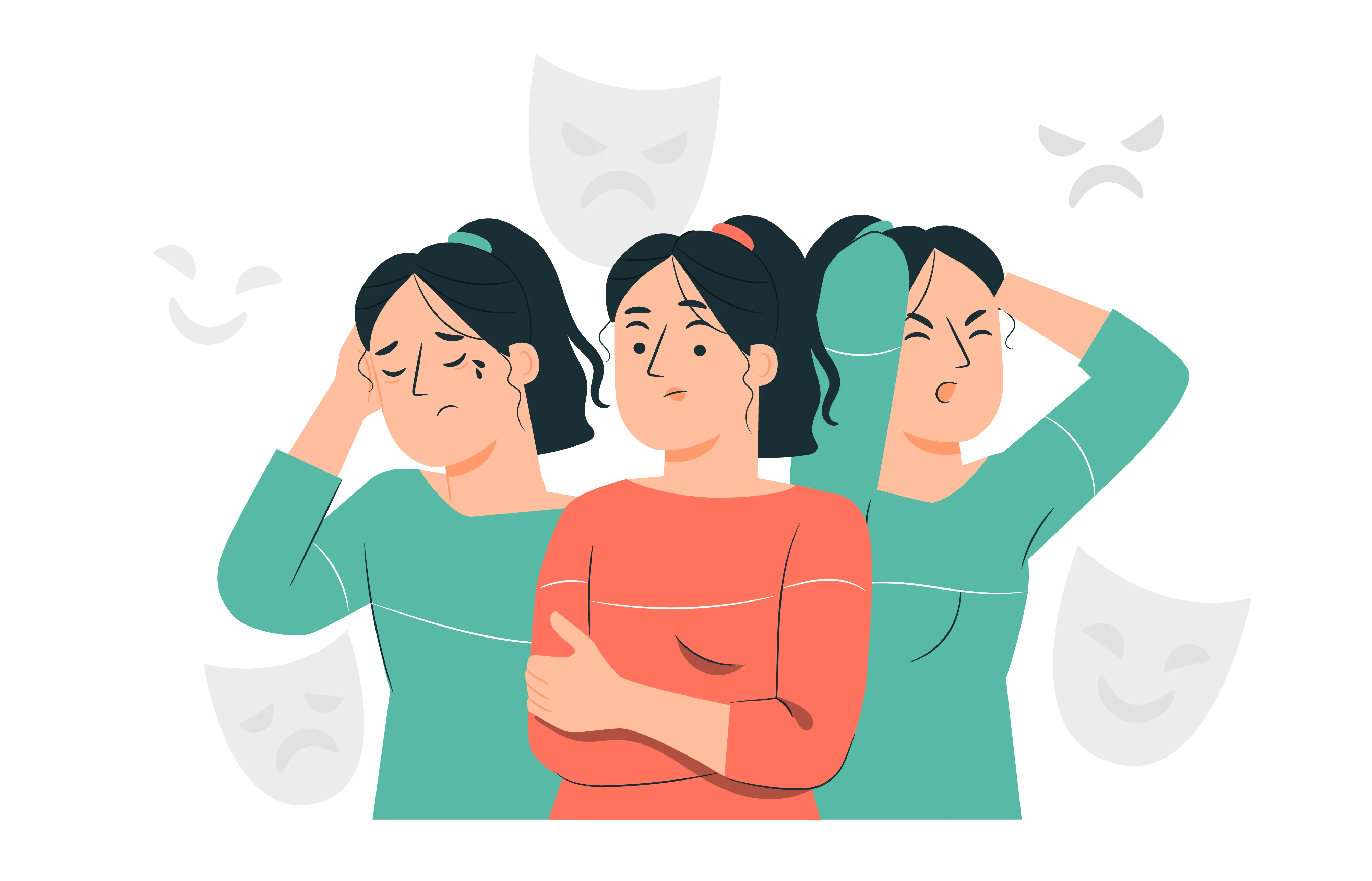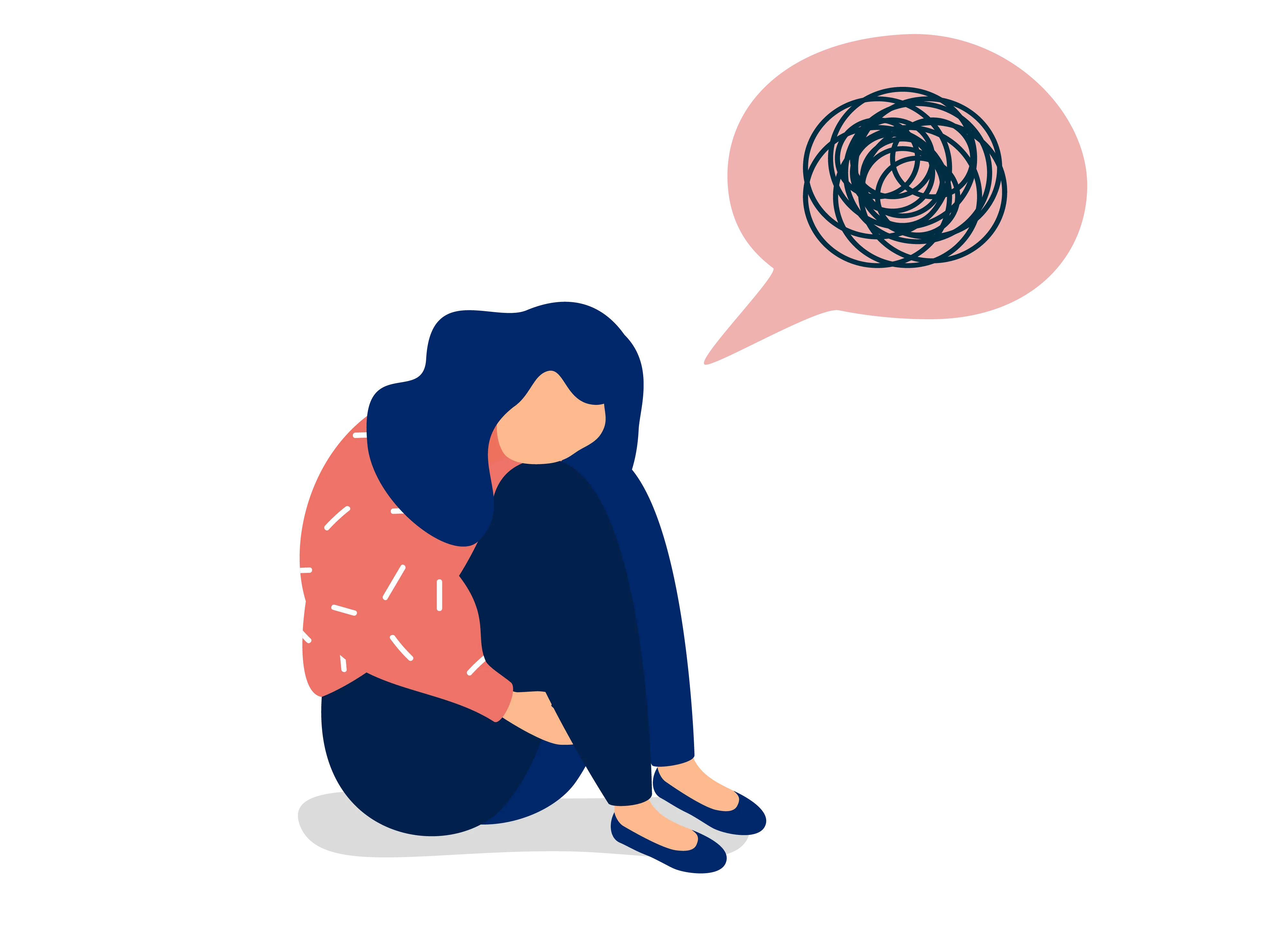Psychiatrist | 4 min read
6 Most Common Types of Mental Illness Symptoms to Watch Out For
Medically reviewed by
Table of Content
Key Takeaways
- Different types of mental illness can impair a person’s mental health
- Anxiety is serious and is among the most common mental illnesses
- Some other common mental illnesses include depression and schizophrenia
Mental health is very important as it defines your social, physiological, and emotional well-being. Be it during childhood, adolescence or old age, mental health plays a vital role in every phase of your life. The way you feel, think, or even act is dependent on your mental health. In fact, it largely depends on the way you manage stress. Both mental health and mental illnesses are interlinked. Oftentimes, those with mental illnesses have impaired mental health, in one way or another.
If not managed properly, it could lead to problems, some with dire outcomes. According to the WHO, suicide rates in India due to mental disorders is 21.1 per 1,00,000 people [1]. This is very serious, which is why you should check for early warning signs and address them as soon as you can. Read on to know about some of the most common mental illnesses and mental illness symptoms that can affect your health.
Additional read: Mental Health and Wellbeing: 8 Important Ways to Mentally Reset Now!

Different types of mental illness
Bipolar affective disorder
It is one of the common mental illnesses that affects the mood of a person. Also called manic depression, mental illness like this presents itself with mood swings. You may experience sudden changes in your mood from being overjoyed to feeling sad for no reason. These fluctuations are typical symptoms noticed in individuals suffering from bipolar affective disorder.
Anxiety disorders
People with this disorder face anxiety attacks when faced with unpleasant situations or objects. It is often diagnosed with panic attacks accompanied by the following symptoms:
- Profuse sweating
- Rapid beating of the heart
- Dizziness
In some cases, social phobia is also common among anxiety disorders. Here, you face anxiety attacks and get nervous when you are around other people. There is a constant fear of being judged by people around you.
Obsessive compulsive disorder
This disorder is characterized by getting obsessed with intrusive thoughts or behaviors. If affected, you may have the same thoughts repetitively, which then turns into an obsession. Sometimes, even if the thoughts are unreasonable, you may not be able to control your actions [2]. By taking proper medications or therapy, you may be able to overcome or control it.

Post-traumatic stress disorder
This mental illness is a result of any unexpected event that may have occurred in your life. If you have experienced any traumatic event, you may experience this disorder. Common triggers include:
- An accident of a loved one
- Sexual assault
- Torture
- Natural disasters you have witnessed.
Getting lost in thoughts or being startled often are the typical symptoms of this disorder.
Psychotic disorders
One of the classic symptoms of this disorder is hallucinations. Seeing things or hearing sounds that may not be real is the first sign. Delusions are next and may cause you to stick to certain false beliefs. You may not be ready to accept the actual facts.
One example of a psychotic disorder is schizophrenia. A schizophrenic individual is unable to connect with the real world. Psychosis may also occur in people that have mood disorders or are in a drugged state. It is a very serious issue and can be quite difficult to control without proper care. People with psychosis will not be as social and may even have self-destructive tendencies.

Major depressive disorder
This is a disorder where you may lose all hope in life. Individuals experiencing this condition are also prone to get suicidal tendencies. Some of the typical symptoms of depression include [3]:
- Feeling worthless
- Loss of appetite
- Poor concentration
- Loss of interest
- Poor appetite
- Fatigue
Following psychotherapy and behavior therapy may improve this condition. Do note that it can be hard to pinpoint the exact cause. It could be stress or genetics that could alter the brain enough to disrupt mood stability. In any case, getting care is important to overcome this condition.
Additional Read: 5 Effective Ways to Cope With Workplace Depression and Help Others Too!As you can see, mental illness symptoms should be treated without any delays. If you see your loved ones struggling with mental health, encourage them to get help on time. By dealing with issues better, they can lead a happier life. Any kind of mental ailments can be addressed by the expert panel of specialists on Bajaj Finserv Health. Book an appointment online within minutes or use the online doctor consultation option in an emergency. Get treatment and expert care instantly, and also access the health library to learn how to manage stress better.
References
- https://www.who.int/india/health-topics/mental-health
- https://link.springer.com/referenceworkentry/10.1007%2F978-3-319-24612-3_919
- https://core.ac.uk/download/pdf/81135362.pdf
- https://www.webmd.com/mental-health/mental-health-types-illness
- https://www.mentalhealth.gov/basics/what-is-mental-health
- https://medlineplus.gov/mentaldisorders.html
- https://www.who.int/news-room/fact-sheets/detail/mental-disorders
- https://www.mayoclinic.org/diseases-conditions/mental-illness/symptoms-causes/syc-20374968
- https://www.betterhealth.vic.gov.au/health/servicesandsupport/types-of-mental-health-issues-and-illnesses
- https://www.psychiatry.org/patients-families/what-is-mental-illness
- https://www.healthline.com/health/mental-health#diagnosis
Disclaimer
Please note that this article is solely meant for informational purposes and Bajaj Finserv Health Limited (“BFHL”) does not shoulder any responsibility of the views/advice/information expressed/given by the writer/reviewer/originator. This article should not be considered as a substitute for any medical advice, diagnosis or treatment. Always consult with your trusted physician/qualified healthcare professional to evaluate your medical condition. The above article has been reviewed by a qualified doctor and BFHL is not responsible for any damages for any information or services provided by any third party.





